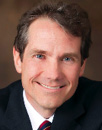It’s all about people.
We hear this phrase more and more as the scale of farming and farm equipment dealerships grow. We also hear it from successful dealers who must drive change in their businesses to keep pace with changes in technology, demographics and competition.
And the more a business grows and changes (and the more its leaders develop along with it), the more likely the best dealer leaders are to heartily endorse this statement.
When they do endorse it, they are often talking about the critical value of hiring, developing and retaining talented leaders. But in order to make the transition from an owner/operator to an executive surrounded by talented managers, one needs to make this a priority. Successful businesses hire and promote the right people, and they also accurately detect — and limit the influence of — those people who would hold the business back in the longer run.
But how do you evaluate leadership talent? How do you distinguish a high potential leader from a good employee who will not succeed in management?
Assessing Leadership Talent
Leadership talent can be broken down into three basic characteristics:
- Drive
- Emotional Maturity
- People Talent
Note that none of these characteristics have to do with industry knowledge. Visionary business leaders often promote a younger, more talented person over a more experienced person with less leadership potential.
Let’s examine each of these three characteristics. (Each of the following sections ends with a suggested interview question for assessing the strength of that particular leadership characteristic.)
Recognizing Drive
“You can’t teach want-to” was the favorite phrase of a successful CEO who I coached for many years. He was right to point out that it was easier to teach someone the features of a product line than to teach him or her drive or determination.
A high potential future leader displays a desire to achieve at a larger role. They have that healthy kind of ambition, which balances a personal hunger for more money and success with the understanding that success comes through the growth of their company. They aren’t the first person to ask for a raise. Instead they are the first to volunteer to do something new or to step up into their boss’s area of responsibility, and they aren’t preoccupied with being compensated for it right away. They show an ability to think like a business owner and orient toward long-term success.
A CEO I work with likes to quote his high-potential senior manager’s response when he asked him years ago to describe his ideal future job. The young man’s answer was “Yours.” An element of drive is confidence. But, talented future leaders may not have a booming voice or physical stature, and they don’t always have a super-abundance of self esteem either. Indeed, some people with a lot of drive have “something to prove.” They might lose sleep over their business or life now and then, but their drive makes them willing to hold their breath and jump into a challenge they aren’t 100% sure they are ready for.
INTERVIEW QUESTION TO ASSESS DRIVE: “As your career in our company progresses, do you see yourself orienting toward working with customers, leading a dealership department or growing the overall business? Why?”
The interviewer should assess the level of career-mindedness and healthy ambition present in the candidate’s answer.
Determining Emotional Maturity
Emotionally mature employees are steadily positive, steadfast and can handle storms with poise.
If there is one trait at the heart of an emotionally mature future leader it is this: They take responsibility for themselves. They assume responsibility for their daily mood, for their monthly financial state and for the overall state of their career and life. If something goes wrong in their area of the business — or in their personal life — they are slow to point the finger at a colleague, a customer, a boss or a parent or spouse.
Instead, they are inclined to think first and foremost about what they could have done to prevent the failure. As a result, their personal lives are relatively steady over the long run, and if they do meet with personal adversity, they are relatively undistracted by it.
One owner described his senior vice president this way: “What I noticed about John when he was a young salesman was that even though he went through some tough times with his family, his problems never became my problems.” High potential leaders have a deeply held belief that people make their own realities, and that the fruits of success are not an entitlement.
Emotionally mature employees are also self-aware. They may not agree with every criticism that comes their way, but they have the ability to thoughtfully consider it. Good coaches can test this quality by asking candidates for advancement to develop a list of their professional strengths and weaknesses. In response, the high-potential employee doesn’t offer quick and easy answers. They take the question seriously, think it over, and come back in the coming days with impressive answers that ring true.
INTERVIEW QUESTIONS TO ASSESS EMOTIONAL MATURITY: “Can you speak about a challenging situation you faced in the past, and some wisdom you gained from dealing with it? In interviews like this, it’s common for candidates to share ‘flattering weaknesses’ such as ‘I work too hard’ or ‘I can’t stand failure.’ Would you be willing to share with me one of your genuine deficits?”
The interviewer should look for a response that shows a tendency to take ownership for challenges faced and a high level of self-awareness and non-defensive candor in the response.
Discovering People Talent
Those with a talent for leading people show wisdom in dealing with relationship challenges. When a future senior leader was just starting out in sales, he discovered that a longer tenured co-worker was repeatedly leaving work incomplete and allowing him to finish it for him.
He didn’t jump to complaining to the boss about it. Instead, he approached his co-worker himself. “Look,” he said, “I respect you and I like working with you, but something has been bothering me. I considered taking it to the boss, but decided that wasn’t fair to you. Instead, I’m going to talk to you about it directly. For the last month I’ve been finishing your work for you, and I don’t understand why that is happening.” The co-worker was strong enough to take the skillfully delivered criticism, and their relationship became an exceptional one from that point on.
INTERVIEW QUESTION TO ASSESS PEOPLE TALENT: “Please tell me about an incident in which you judged yourself as a highly effective leader of another individual.” Interviewer looks for the ability to think well about people matters. “How would you handle a situation where one of your direct reports comes to you to complain that a co-worker is very difficult to work with?”
The interviewer should look for an exceptionally thoughtful response, where the potential leader challenges the complainer to handle it successfully himself.
Establishing Your Plan
These three characteristics of high-potential leadership talent — drive, emotional maturity and people talent — can be hard to measure for those who aren’t used to thinking about them. Their absence is obvious, but their presence may be hard to quantify when one is used to hustling from task to task. Many leaders have to invest time and training in order to grow their expertise in assessing and developing future leaders.
One way to do that is to spend some time each week thinking about assessing talent. Try making a spreadsheet of all your managers, and rate each on these three characteristics. Ask yourself why you gave the rating that you did, and use the coaching skills discussed in the last series of articles to talk to your managers about your perceptions. A high-potential leader with drive, emotional maturity and people talent will use that coaching session as an opportunity to grow, rather than seeing it as a threat or a distraction.
Another great way to grow in your ability to detect and develop leaders is to find a coach yourself and grow your own leadership skills. Learning firsthand by yourself gives you immediate access to tools you can use with your senior team.
You’ve likely heard about the difference between management behaviors and leadership behaviors. “Managers do things right, leaders do the right things.”
Learning to assess and develop your dealership’s talent is definitely the right thing to do.
You May Also Be Interested In...
Case Study: When is Investing in a New Structure the Right Decision?
In this year's SOURCEBOOK Special Report, we went in-depth with 5 different scenarios examined in a format similar to Harvard Business Review case studies. In one case study, we explored how a consultant might approach a farmer questioning whether they should invest in a new building.









